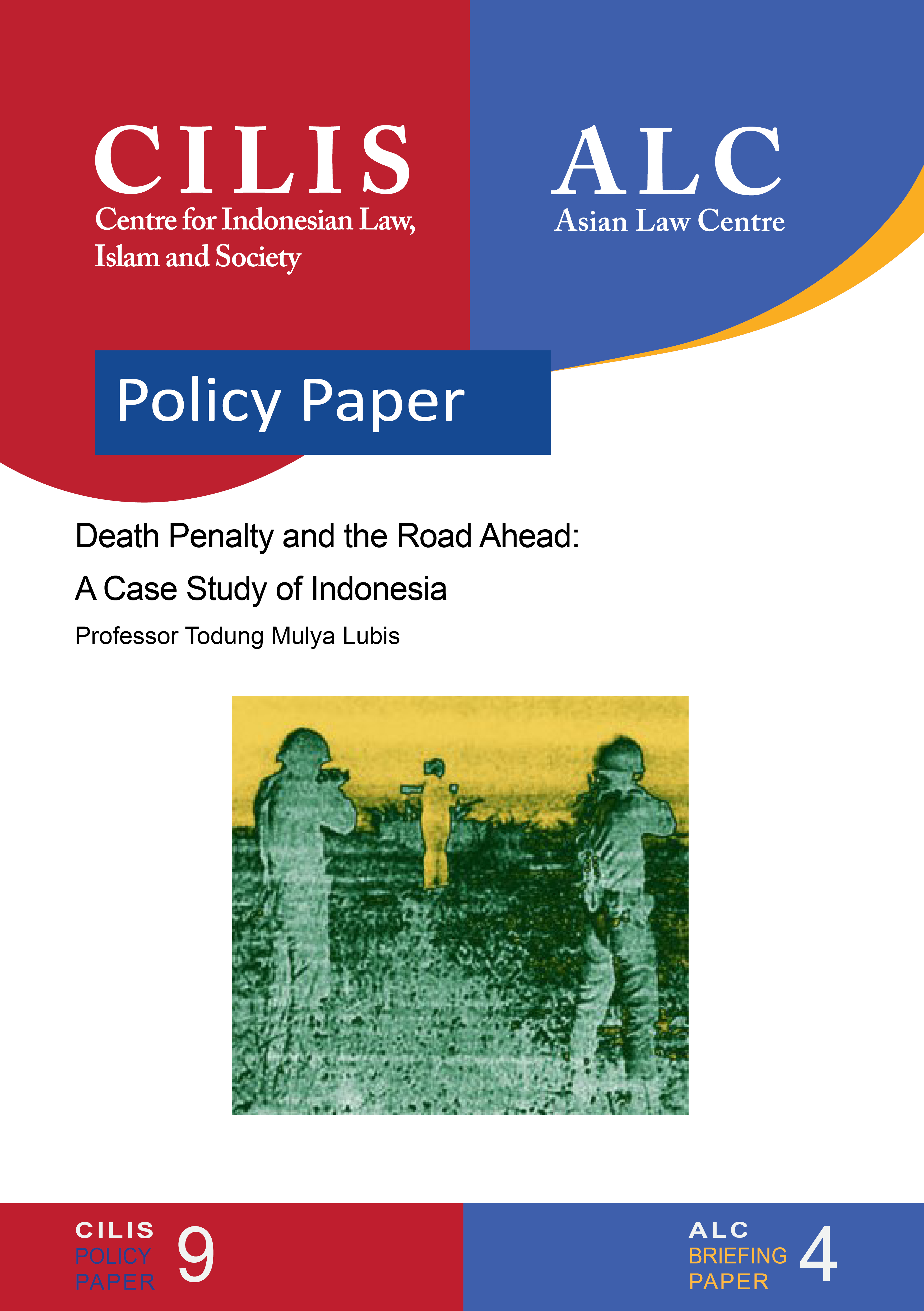No 4 (2015) by Professor Todung Mulya Lubis

Indonesia has been criticised nationally and internationally for its use of the death penalty. Critics argue the death penalty does not deter crime and there has never been any solid empirical evidence suggesting it can. They say the objective of punishment should be to re-educate and rehabilitate people, giving them the opportunity to reintegrate with society, not to kill them. Globally only a small number of states still execute. Indonesia does give weight to these objections but domestic support for the death penalty still seems overwhelming. Few governments anywhere are willing to abolish the death penalty if they have to pay a high political cost and the government of President Joko Widodo is no exception. Some sort of compromise or alternative has to be found. One solution would be to formulate a policy respecting human rights (especially the right to life) but still allowing executions in exceptional circumstances. The Indonesian government seems to be trying to do this in its new draft Criminal Code. This says that if a death row convict demonstrates rehabilitation, his or her sentence can be reduced to either life or 20 years in prison. If this had been the law earlier this year, it could have saved the two Australians recently executed, Myuran Sukumaran and Andrew Chan. Debate on the Draft of Criminal Code is a perfect opportunity for both proponents and opponents of the death penalty. There is, however, a new momentum towards abolition in Indonesia, and this paper argues that it should be used to the maximum possible extent to prevent more executions, and outlines a strategy for how this might be done.
Professor Todung Mulya Lubis was the lead Indonesian defence lawyer for Myuran Sukumaran and Andrew Chan. He is one of Indonesia’s leading human rights lawyers and most influential legal thinkers. He completed his undergraduate Law degree at the University of Indonesia (1974); his LLM at the University of California, Berkeley; a second LLM at Harvard Law School; and his JSD at the University of California, Berkeley. He has been a senior Adjunct Member of the Faculty of Law of the University of Indonesia since 1990, where he was first appointed in 1975. From 1980-1983, he was Director of Indonesia’s famous dissident NGO, the Legal Aid Institute, where he worked for many years. His influential book In Search of Human Rights: Legal Political Dilemmas of Indonesia’s New Order 1966-1990 has played an important role in thinking about human rights in Indonesia. Professor Lubis is also Founding and Senior Partner of a prominent law firm in Jakarta and has been lead counsel in a number of major human rights cases, often on a pro bono basis. These include acting for the Bali Nine in an attempt to convince Indonesia’s Constitutional Court to abolish the death sentence, and against former President Soeharto. He has also held a series of senior government appointments. In 2014, he was appointed as Honorary Professor in the Melbourne Law School.